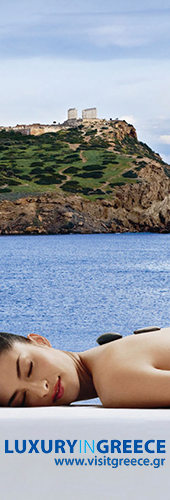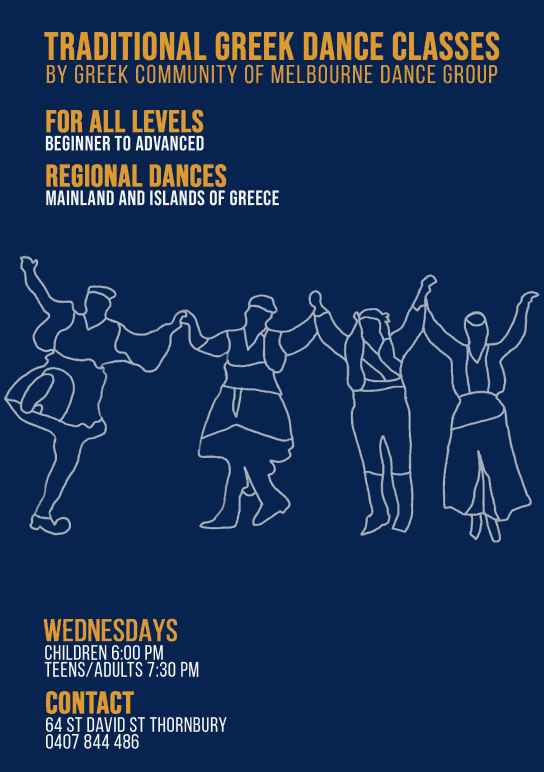- About Us
- Latest News
- Calendar
- Education
- School History
- ELA - For Toddlers
- Greek as a Second Lang.
- Greek as a Primary Lang.
- Conversational Skills (Online)
- Online Greek Courses
- Greek for Adults
- Ancient Greek
- Open Seminars
- Creative Drama
- Traditional Greek Dance
- Apply to Teach
- Holiday Program Enrolment
- Excursion - Museum
- School Polo Order Form
- Parent Notice to School
- Community Churches
- Membership
- Greek Centre
| Traditional Greek Dance Classes - all levels |
|
Greek dancing and culture classes are aimed at people who wish to learn to dance, but also for proficient dancers who want to cultivate their dance expression and a regular venue where you are able to express your culture. You do not have to have any previous experience in dancing. We accept students of any cultural background, varying physical ability and all ages. Elements covered in the dancing classes: rhythmology, kinesiology, musicology, dance expression, Stage presence, Improvisation, and analysis of regional dance style characteristics. Endymatologia (costumes design), traditional folk rituals some dating back to ancient times. All the content is verified in a scientific academic/ peadagogogical manner. We cover dances and traditions from every region of Greece including teaching zeimbekika etc (which are also traditional dances).
Our Philosophy:
Where we vary from other groups.
Some regions we have covered in recent years: Euboea, Gagavouz Thrace, Naxos, Cappadochia, Vlach, Sarakatsan, Drama, Konitsa, Messinia, Karagounika, Northern Thrace, Serres, Grevena & Voio Kozani, Roumlouki, Goumenissa Kilkis, Levos & Chios, Ikaria, Eptanissa, Dodecanese, Xiromero and more.
Why do traditions, dances and music vary so much from region to region? Due to Greece’s mountainous landscape and many islands this creates natural borders so the musical and dance traditions of each region evolved predominately independent from other regions, thus resulting in an extremely rich and varied traditional musical culture. The dance group aims to introduce to the wider community dances rarely seen outside their homelands. This is where we see the true essence of Greek folk culture. Dance classes: Venue: St Georges Church hall, Corner Saint David and Martin streets Thornbury. Wednesdays: 7:30 to 9:30pm all ages welcome. 6:30p – 7:30pm Children Primary school ages. Contact: Nick, 0407844486 |

























